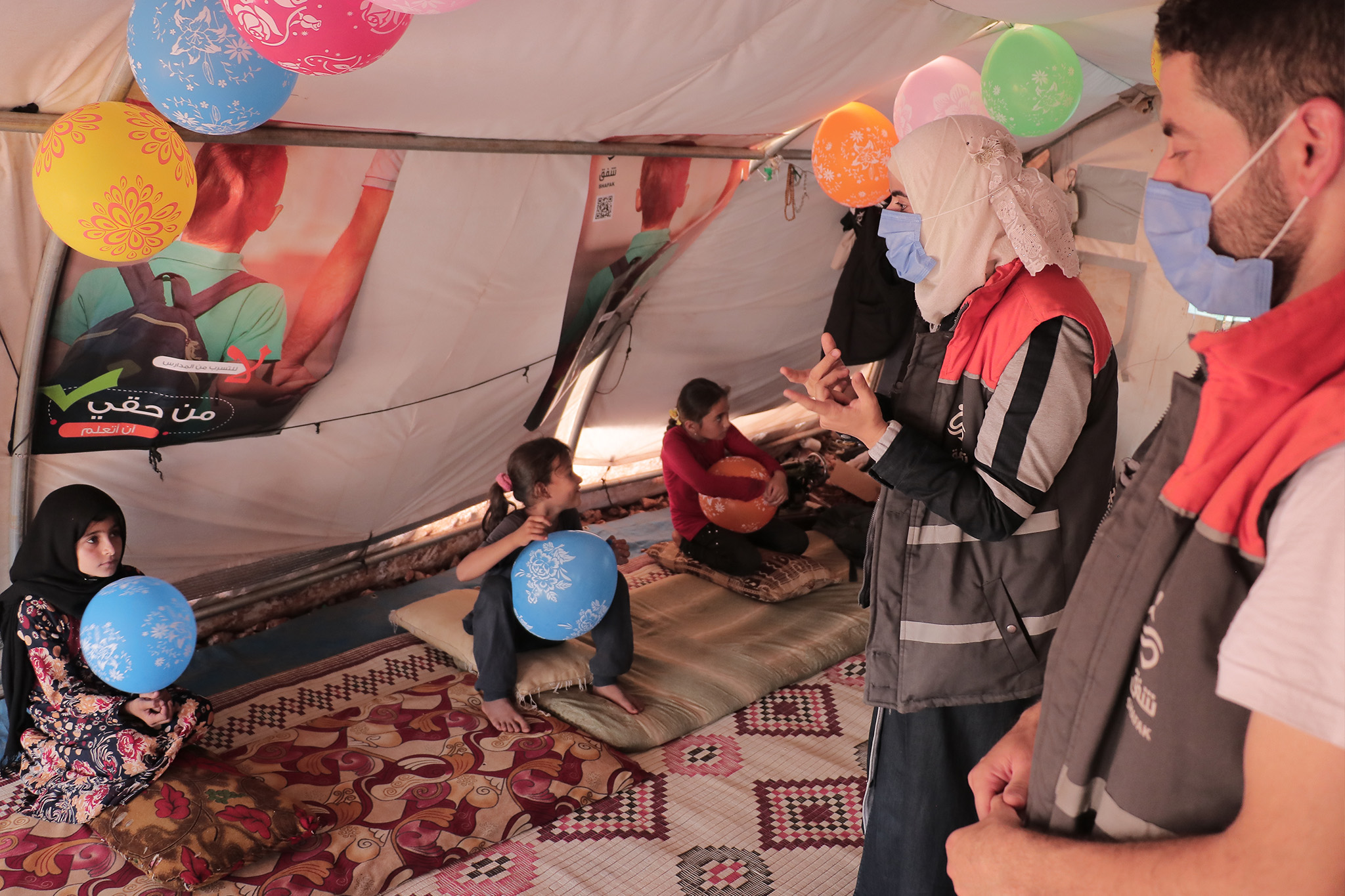
The project includes providing the camps with clean, sterilized drinking water, as well as providing the camps with prefabricated toilet blocks, providing containers, transferring solid waste, and suctioning sludge from the technical holes, in addition to maintaining a sewage line in the camps.
It also includes the activity of health awareness, maintaining personal health and preventing diseases in conjunction with the spread of epidemics (Corona), and distributing hygiene baskets to the targeted camps with mobile laundries.
With the aim of securing a healthy environment for the displaced in the camps, raising health awareness of the people to protect them from diseases and epidemics, and enhancing livelihood activity by contracting workers to clean toilet blocks that were established in the targeted camps.
Project Activities:
1 – Distribution of clean drinking water tanks to the camps.
2 – Providing sterile drinking water for the camps.
3 – Distribution of mobile washbasins for families in the camps.
4 – Construction of prefabricated toilet blocks with technical beds and support workers for cleaning toilet blocks in the camps.
5- Distributing garbage collection containers and removing garbage from the camps.
6- Providing health awareness sessions to raise awareness among the displaced in the camps and distributing hygiene baskets to families
7 – Maintaining a sewage line in one camp and establishing a sewage network in another camp
Idlib, Harem, Al-Dana, Aqrabat, Keli, Barisha, Ma’rat_Misrin, Al-Ghafrah, Babiska, Batna
Number of beneficiaries: 8235 beneficiaries
Most of the targeted families within the targeted camps buy water through tankers, and this water is considered unsafe, in addition to the high costs for the displaced within the camps. Therefore, Shafak intervened in the camps and provided free water through water tanks and a drinking hall in coordination with the support coordination unit team to conduct water tests The necessary physical, chemical and bacterial tanks were also distributed according to the standard of 35 liters per person per day according to the cluster standard and the donor, the distribution of garbage containers and the establishment of separate toilet blocks according to gender and special blocks for people with special needs in the targeted camps. Sewage networks were also established and operations were conducted Maintenance and expansion to reduce the costs of suctioning the holes, as they are considered sustainable solutions for the beneficiaries within the camps
